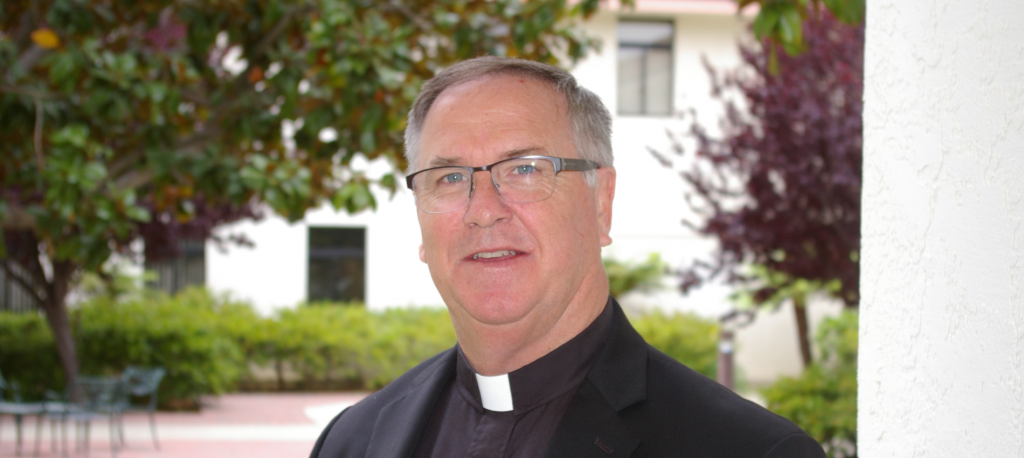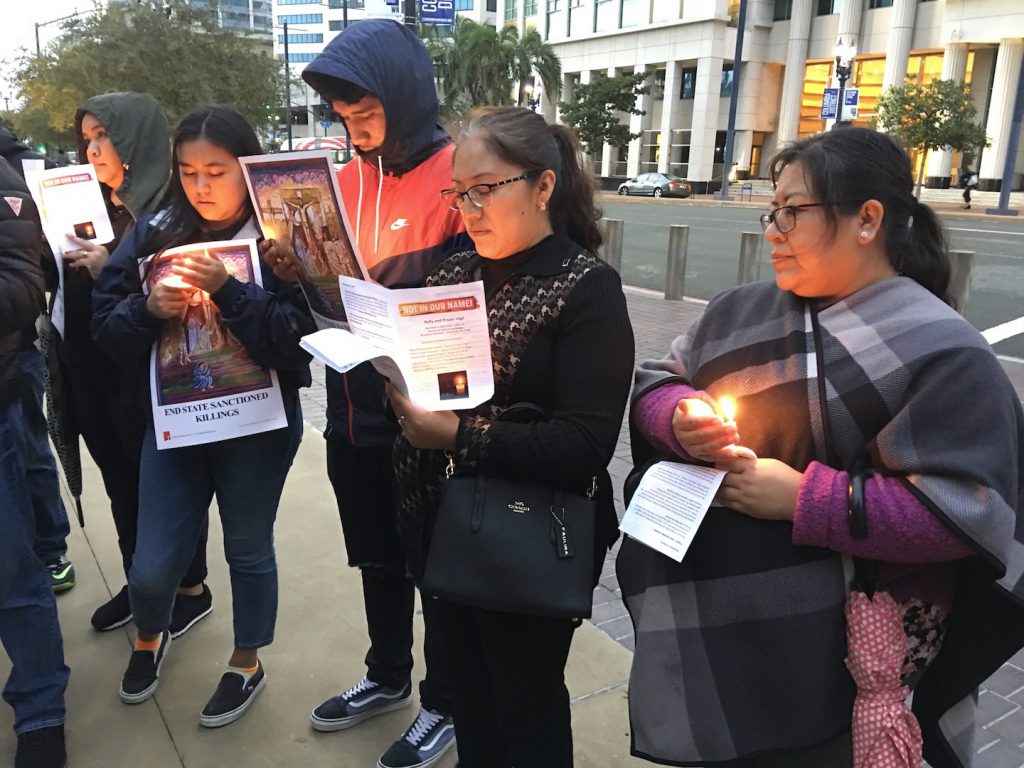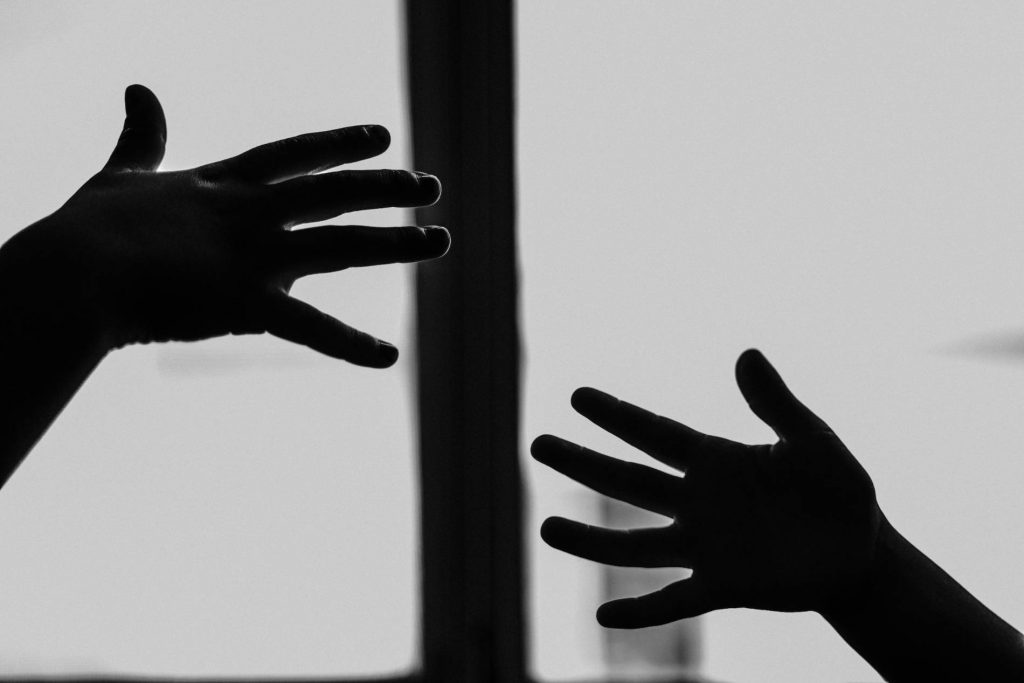SAN DIEGO — Tragedy has struck the family of San Diego’s former auxiliary bishop, John P. Dolan.
Bishop Dolan, who has led the Diocese of Phoenix since August, shared through his personal Facebook account that his youngest sister, Mary Elizabeth Dolan, has died by suicide. Her body was discovered in her home on Oct. 16. She leaves behind a son and a daughter.
“Mary was an extremely talented and brilliant woman who, from her days in college, suffered from mental depressive disorder,” the bishop wrote.
He shared that his sister had pursued a musical career, during which she had sung alongside performers like Steve Poltz, Eve Selis, Jewel and others. Her struggles with depression and debilitating back pain had prevented her from continuing that career.
“We understood that Mary struggled and were aware that her depression could lead to this moment, although we always held out hope. … I am convinced that the Lord who conquers all things is leading Mary to himself,” Bishop Dolan wrote.
The Diocese of Phoenix further disseminated the sad news, announcing in a tweet on Oct. 20, “Our hearts are breaking as we make known the loss of Mary Elizabeth Dolan.”
Mary is the third of Bishop Dolan’s eight siblings to die by suicide. He previously lost a brother and a sister, as well as a brother-in-law, to suicide. These personal losses inspired him to become a strong proponent of mental health ministry, both within the San Diego Diocese and now in the Diocese of Phoenix.
In early September, scarcely a month after his installation Mass as the bishop of Phoenix, he celebrated his new diocese’s first Mass of Remembrance for Suicide Victims and, in his homily, announced the creation of a diocesan office of Catholic Mental Health Ministry.
Bishop Dolan is the co-editor of two books on suicide, “Responding to Suicide: A Pastoral Handbook for Catholic Leaders” and “When a Loved One Dies by Suicide,” both of which were winners in the Association of Catholic Publishers’ 2021 Excellence in Publishing Awards.
During the U.S. bishops’ ad limina visit to Rome in January 2020, Bishop Dolan personally urged Pope Francis to write a letter to the faithful on the issue of suicide, telling the pope that the people “need to hear from you.”
In an interview with The Southern Cross in late 2020, the bishop reflected on why he has been so dedicated to raising awareness about mental illness and suicide in the Church.
“I do this because of my own journey through this reality,” he said. “I had shared my story as a priest in retreats and in Masses. And now that I’m a bishop, I felt it was important to let people know that even someone in the Church hierarchy, like a bishop, has people in their lives who have died by suicide, and that they are not alone in this. Suicide affects everybody, at every stage in life.”
In a separate interview, also in late 2020, he told The Southern Cross that there was a time when those who died by suicide were denied a Catholic burial because it was believed that their final act was a freely chosen and deliberate choice to commit a serious sin. However, he said, advances in psychology, including a better understanding of how mental illness can cloud a person’s mind and reduce culpability for one’s decisions, have shown that suicide is “not such a black-and-white issue.”
“The Church will continue to say that the act (of suicide) is grave matter … but our understanding of that is now coupled with the science of psychiatry and psychology and also pastoral care,” he explained.
In the Diocese of San Diego, Bishop Dolan presided over special Masses for survivors of suicide loss and for mental health awareness. Under his watch, the diocese also rededicated its Mental Health Ministry Network under the leadership of a new director, Deacon William Adsit, who was appointed by Bishop Dolan in May 2019.
The mission of the network, which is composed of mental health ministries at local parishes, is to accompany those suffering with mental health issues and those who love them, to refer them to mental health professionals when needed, and to work to end the stigma associated with mental illness.
A little over a year after his appointment, Deacon Adsit told The Southern Cross that the more comfortable people are talking about suicide and suicidal feelings, the fewer people will suffer in silence.
“You are not alone. That’s what we’d like to have all our parishioners know in the Diocese of San Diego,” he said. “You’re not alone; there’s help available.”
Those contemplating suicide are encouraged to dial 988 to reach the national Suicide & Crisis Lifeline, which is available 24/7 and is able to connect callers with resources in their local communities. The diocesan Mental Health Ministry Network can be reached at sdcatholic.org/mentalhealth or wadsit@sdcatholic.org.









